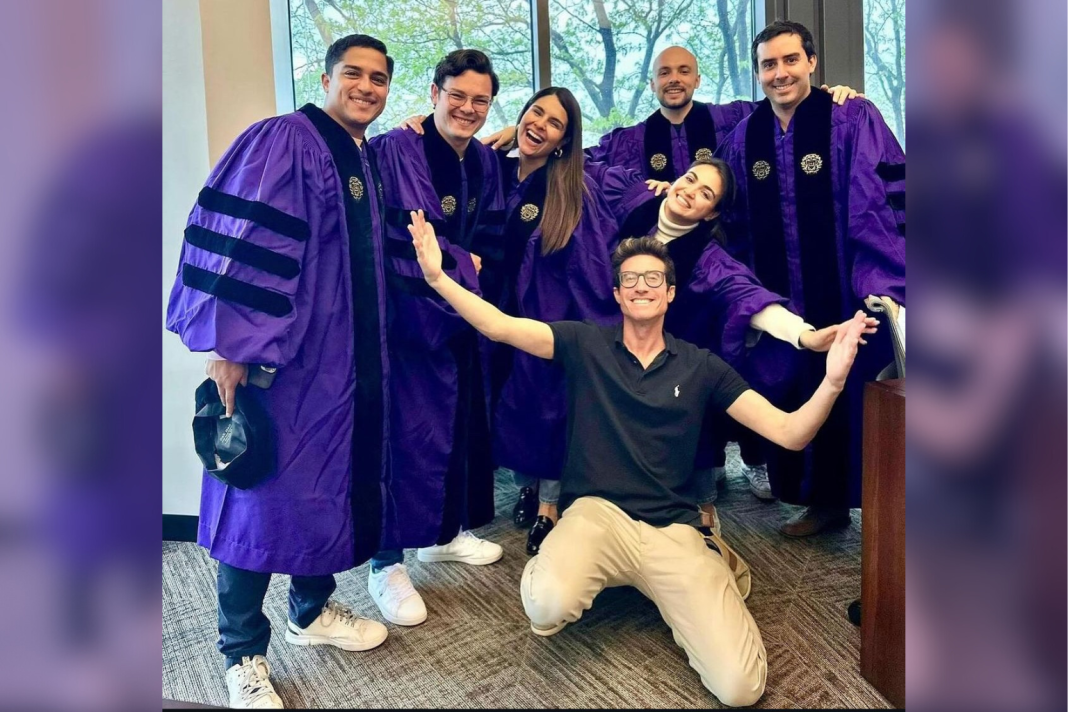Two years ago, I was asked if I would be interested in contributing to the International Jurist. I had just departed a staff position to take a year off to travel and unwind.
Two years of pandemic-era work in a leanly staffed workplace had exhausted me. For the first time since 2015, I was deciding whether I wanted to remain inside higher education.
My move to China in December 2015 transformed my career. I was hoping for similar inspiration in Indonesia in September 2022.
September in Bali was going well with a lot of beach sunsets and minimal emails.
On September 21, 2022, the article profiling my background and welcoming me to the team went live (“In addition to his academic career pursuits, Alter created a blog, Beyond Non-JD to share information with LL.M. students. He will soon write a quarterly blog for this site.”).
2022-23 was an important year for me personally. Professionally? The combination of my pieces for the International Jurist, three online LEALS courses and my Beyond Non-JD blog kept me engaged with the world I had pushed pause on.
Year two at the International Jurist
I returned to the U.S. and inside higher education for 2023-24 and was honored to be invited back to write for the International Jurist. My quarterly contributions became monthly pieces. And as I navigated new challenges professionally, I leaned on my amazing colleagues across the U.S. to provide insights and guidance for foreign-educated lawyers and law students seeking to study in the United States.
My writing for the International Jurist helped me stay connected to LL.M. students across the U.S. and prospective LL.M. students around the world. And the monthly format allowed me to tackle topics I get asked about all the time, ranging from exchange programs to LL.M. fairs to LL.M. bar exam statistics.
Theme for 2024-25
Being invited back for a third year invites a new type of (welcomed) pressure. Can I continue to write articles that prospective and current LL.M. students find value in reading? And that justify keeping me on as a contributor?
As I’ve already seen twice in my career, it is far better to move on when things are going great. The alternative: stay somewhere a little too long and regret it. So I took some time before committing to really evaluate whether I have enough new material to justify the International Jurist keeping me on for a third year. No Bali sunsets to help inspire me with this decision. But Lake Michigan sunrises over Chicago helped.
I’m back for Year 3!
My theme for 2024-25 is “what is the place of the United States in the global marketplace for LL.M. students.”
I started early with my July piece that teased out this theme. Over the coming year, I’ll explore several interrelated issues surrounding this important topic: overall costs, the regulatory scheme, our collective competitive advantages and disadvantages and much more.
Goals for 2024-25
I want LL.M. programs and LL.M. students to thrive within U.S. law schools. I will remain inside higher education in 2024-25 because I still believe I can continue to help guide the discussion around non-J.D. programs and international students from within. Three of my goals around this theme:
Goal No. 1: The informed LL.M. era: We are not going to get a similar set of Required Disclosures for LL.M. programs that J.D. students receive. And so my goal is for every LL.M. student to understand the benefits and tradeoffs of these programs before they matriculate, especially as they compare the U.S. to their other options. Writing for the International Jurist gives me a national and international platform to help provide guidance to prospective students around the world.
Goal No. 2: More resources for LL.M. students: LL.M. students collectively spend a lot of money for their degrees. I conducted polls on Beyond Non-J.D. that gave me numbers to back up my observations and gut feelings. For us to compete globally to attract the best law students to choose the United States for their LL.M. degrees, we must collectively understand that students are looking at what happens after the LL.M. program as much as what happens during the LL.M. program, and what resources we can utilize to help achieve that. Especially for the “superfunders,” a term I’ll use to describe the people spending more than $50,000 on their LL.M. degrees.
Goal No. 3: Understanding our colleagues abroad (aka “competition”): What happens in the U.S. does not happen in a vacuum. The types of students I teach and speak with are usually not “all-in” on the United States. I polled a group of LL.B. students abroad and gained more insights into this topic. Teaching students thinking globally as they decide where to study gives me a unique look into this area. We have two of the best structural advantages, but we also have two of the biggest structural disadvantages compared with our colleagues abroad. I’ll look to incorporate more insights from colleagues in other jurisdictions this year and see what we can collectively learn.
Reach out
I am excited to return for a third year and I hope you will continue to enjoy reading my articles. Do you have a topic you think I should delve into this year around this theme? Reach out at joshuamatthewalter2@gmail.com.

